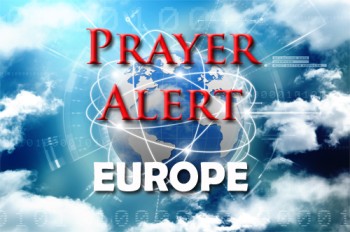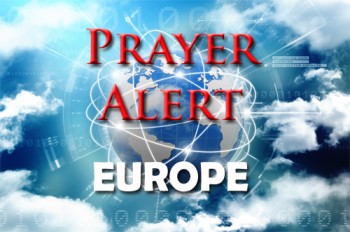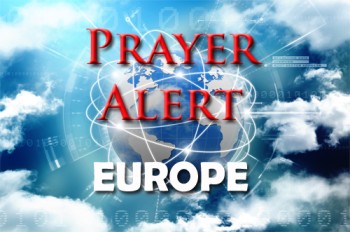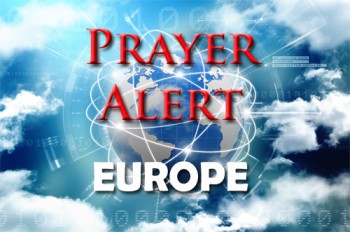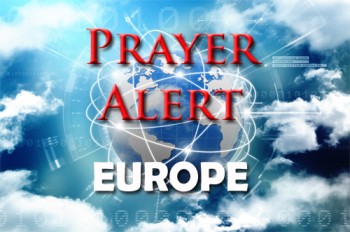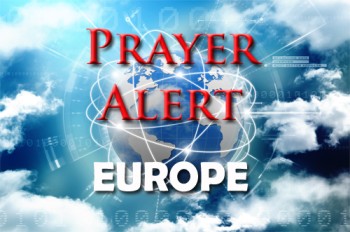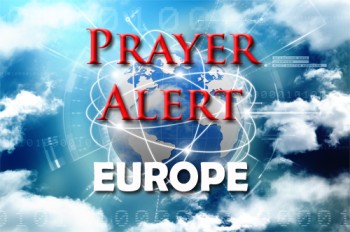Displaying items by tag: Germany
Germany: ten years after Merkel opened borders to migrants
Ten years after Angela Merkel opened Germany’s borders to migrants with her famous ‘We can do this’ pledge, the nation continues to grapple with the political and social repercussions. Syrian refugee Anas Modamani, who arrived alone at 17 after a perilous journey and became briefly famous for a viral selfie with Merkel, now lives in Berlin with German citizenship and an IT career. Between 2015 and 2024 Germany registered 2.6 million first-time asylum requests - over a third of the EU total - primarily from Syria, Afghanistan, and Iraq. While many Germans initially embraced ‘Willkommenskultur’, the mood has now changed significantly, evidenced in the rise of the far-right AfD. Current chancellor Friedrich Merz has tightened border controls, though courts have blocked some measures. As public opinion hardens - 68 percent now favour fewer refugees - applications from Syrians and Afghans have fallen. Modamani senses a colder atmosphere and says he might leave if hostility grows.
Germany: WW2 bombs defused after mass evacuation
Authorities in Cologne have safely defused three large American World War 2 bombs after evacuating over 20,000 people in what officials described as the city’s largest operation since the war. Discovered in a shipyard, the bombs triggered the evacuation of a densely populated 10,000 sq m area, including homes, shops, schools, a hospital, a major train station, and cultural sites. Bomb disposal efforts could only begin once every resident was accounted for, with police warning that refusal to leave would lead to forced removal and fines. Ambulances transported intensive care patients, while couples scheduled to marry at city hall were relocated. The city ground to a halt: roads were closed, public transit was suspended, and normally lively streets went silent. While WWII bomb discoveries are not uncommon in Germany, the size and impact of this operation were exceptional. Authorities praised residents cooperation and reminded the public to remain calm and prepared, underscoring the lingering dangers of past conflicts.
Peru: farmer’s lawsuit against polluting German firm
A German court has dismissed a lawsuit by Peruvian farmer Saul Luciano Lliuya against energy giant RWE, rejecting his claim for damages over flood risks in his hometown linked to climate change. Lliuya argued that RWE’s historic carbon emissions contributed to the melting of Andean glaciers threatening his town of Huaraz. Though the court found no immediate threat to his property, it acknowledged that major emitters may bear proportional costs for preventative climate measures. This ruling, while unfavourable to Lliuya, is seen as a landmark in climate litigation, particularly as it came from a plaintiff in the global south against a global north corporation. The court also said that RWE should have foreseen the effects of its emissions. Although RWE argues that climate change cannot be blamed on a single emitter, legal observers view the case as a potential turning point for holding polluters accountable globally.
‘Germany is back’ after Merz secures coalition agreement
Germany's conservatives, led by Friedrich Merz, have formed a coalition with the Social Democrats, ending five months of political uncertainty. Merz, 69, promised strong leadership, reforms, and renewed international confidence, declaring, ‘Germany is back on track’. The coalition plans major investments in defence and infrastructure, made possible by reforms to strict debt rules. A key focus is controlling irregular migration and restoring voter trust. Despite pressure from the far-right AfD, which recently topped opinion polls, Merz promised to balance firm border policies with democratic values. The coalition also pledges increased military spending and voluntary service, following Sweden’s model. Boris Pistorius will remain as defence minister, ensuring continuity. Support for Ukraine and fulfilling NATO commitments are central to the agenda. While critics question the coalition’s ability to end the recession, Merz remains optimistic.
Germany: conscription to be reintroduced?
Germany’s conservative leaders have argued that the country should quickly reintroduce compulsory military service. Friedrich Merz, leader of the new CDU/CSU government, argues that Europe must take greater responsibility for its defence, especially given NATO’s uncertain future. Defence spokesman Florian Hahn says the suspension of conscription ‘no longer fits the current threat situation’, and wants to see new conscripts before the end of 2025. Merz also supports a mandatory year of military or community service to strengthen personnel numbers. While conscription remains controversial, cross-party support for it is increasing. A new system, put in place by the previous government, will require 18-year-old men to complete a questionnaire about their interest in the army and their physical condition; for women it will be optional. A contingent of men and women will then be invited to a selection process. Without immediate action, Germany’s armed forces risk severe shortages in the coming years.
Germany: chancellor-elect criticises Trump, struggles to form coalition
Following the 23 February election, Christian Democratic Union (CDU) leader Friedrich Merz has criticised Donald Trump, calling for European defence independence. He warned that NATO’s future was uncertain and called for urgent action on European security. Despite strong rhetoric, his party won only 28.6% of the vote - its weakest victory since 1949. He is negotiating a coalition with the Social Democratic Party (SPD), led by Olaf Scholz, but deep divides remain. Merz favours arming Ukraine, reviving nuclear energy, cutting welfare, and maintaining Germany’s constitutional deficit ceiling, while Scholz has resisted sending missiles to Ukraine and advocates loosening fiscal constraints. Immigration is another battleground, with Merz pushing to curb family reunification. Germany’s role in NATO, economic policy, and military spending hang in the balance as these leaders attempt to bridge their stark differences. The election results, especially the strong showing by the far-right party AfD, highlighted the deep divide between East and West Germany: see
Germany / Ukraine: Scholz criticises Trump’s demand for rare earth resources
Olaf Scholz has criticised Donald Trump’s proposal to make US military aid for Ukraine conditional on access to the country’s rare earth resources, calling it ‘selfish and self-centred’. A Ukrainian source has said that resource-sharing had already been included in Volodymyr Zelensky’s ‘victory plan’, which has been presented to foreign leaders, including Trump. The future of US aid to Ukraine remains uncertain, with military assistance continuing but non-military aid programs frozen under the new administration. Germany is Ukraine’s second-largest military donor; however, Scholz has blocked proposed additional security assistance worth €3 billion unless it is covered by new government borrowing. He has also resisted sending Taurus cruise missiles, citing escalation concerns. As Ukraine seeks continued support, Western nations face internal debates over military aid, economic interests, and the war’s broader implications.
Germany: huge protest against collaboration with far-right
Tens of thousands of Germans have protested in Berlin against perceived political collaboration with the far-right Alternative for Germany (AfD). The demonstrations followed votes in which the centre-right Christian Democratic Union (CDU), led by Friedrich Merz, received AfD backing on immigration-related proposals. While Merz insists he did not seek AfD support, critics including former chancellor Angela Merkel view this as a violation of Germany’s post-war commitment to reject far-right alliances. The protests attracted around 160,000 participants. With national elections weeks away, CDU leads the polls, with AfD in second place. Merz has ruled out forming a coalition with AfD, but tensions remain high. Demonstrators, alarmed by potential shifts in Germany’s political landscape, have called on democratic parties to protect the nation’s values.
Germany: early election after no-confidence vote
The chancellor, Olaf Scholz, has lost a vote of no confidence in the German parliament, resulting in an early election which will take place on 23 February. Although he expected the loss, Scholz saw this as an opportunity to rejuvenate his party’s fortunes; after the collapse of his three-party coalition government in November, his minority administration has struggled to pass legislation. His Social Democratic Party (SDP) is lagging in the polls, while the conservative Christian Democratic Union (CDU) seems poised to return to power. Following the vote, the president has 21 days to dissolve parliament. This early election campaign will focus on key issues such as the economy, immigration, and taxes. The rise of radical parties, like the hard-right Alternative for Germany (AfD) which is currently polling at almost 20%, adds complexity to coalition-building efforts, as the mainstream parties struggle to form a stable government.
Germany: coalition government on brink of collapse
Germany’s ruling coalition faces a crisis after chancellor Olaf Scholz fired finance minister Christian Lindner, citing a breakdown of trust. Scholz, leader of the Social Democrats, said that Lindner, head of the liberal Free Democrats (FDP), had prioritised his party’s interests over the country’s needs. This move has left Scholz's coalition without a parliamentary majority; this might lead to a vote of confidence in January and early elections. Tensions within the coalition had been brewing for weeks, particularly over economic policies. Scholz and the Green party had pushed for increased public spending, especially to counter rising energy costs and defence needs following Russia's invasion of Ukraine, but Lindner wants to pay for tax cuts by slashing welfare and social budgets and pushing back environmental targets. The political turmoil comes amid economic stagnation and growing uncertainties in Europe, compounded by Donald Trump’s election.
